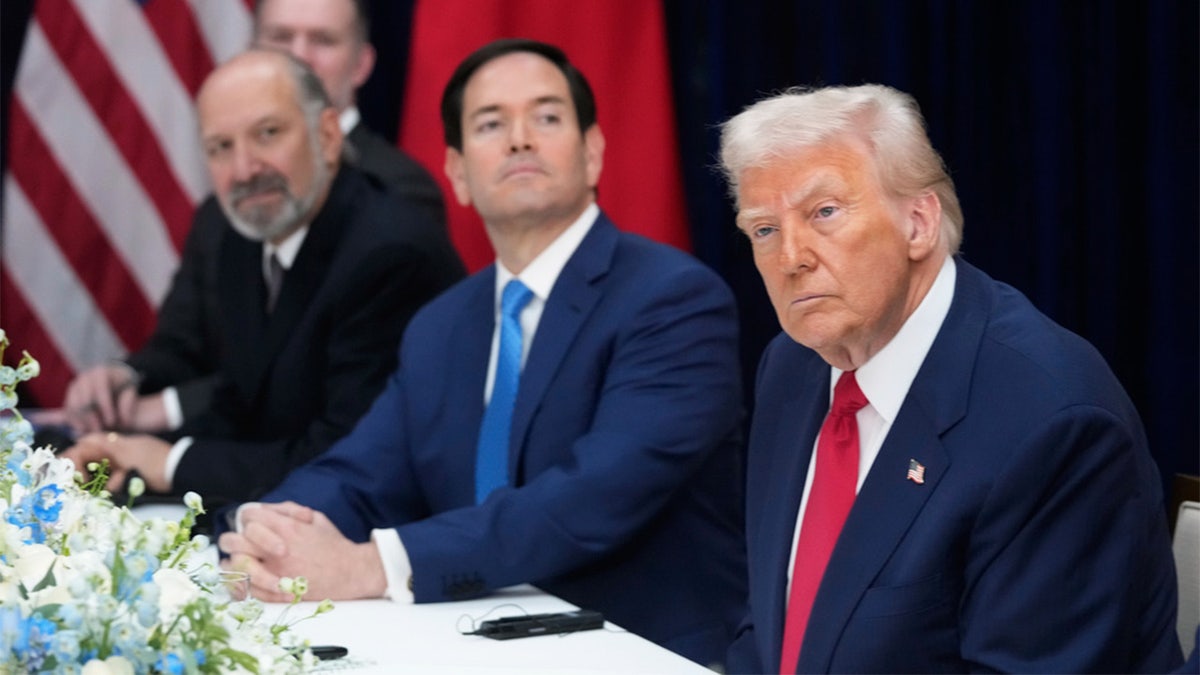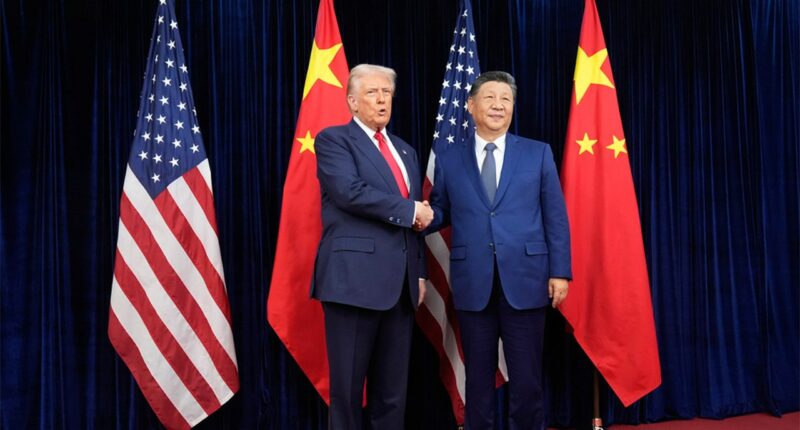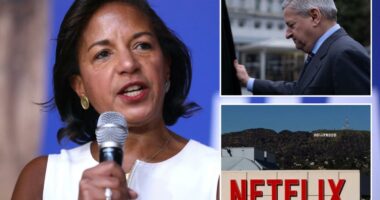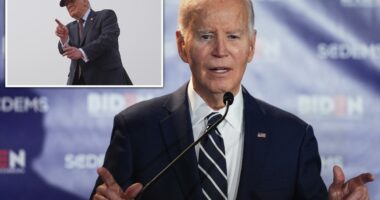Share this @internewscast.com
On Thursday, President Donald Trump announced plans to reduce tariffs on Chinese imports following a crucial meeting with Chinese President Xi Jinping in South Korea. The discussions, which were closely watched, yielded new agreements on key issues such as fentanyl regulation, agricultural trade, and temporarily halting restrictions on rare-earth exports.
The meeting, held in the city of Busan, concluded Trump’s tour of Asia, which also included visits to Malaysia and Japan. A primary focus of the trip was to ease the ongoing economic tensions between the U.S. and China.
Since resuming office in January, Trump had imposed significant tariffs on Chinese goods, prompting China to restrict its rare earth element exports. Both Trump and Xi expressed a willingness to de-escalate tensions to prevent further disruptions to the global economy.
In the lead-up to the summit, officials from both nations indicated that discussions would revolve around tariffs, the export of advanced technology, and supply chain competition. These issues have been longstanding challenges in U.S.-China relations. Trump expressed optimism to reporters, suggesting that the two countries could find areas of agreement.

President Donald Trump, left, and Chinese President Xi Jinping, right, shake hands before their meeting at Gimhae International Airport in Busan, South Korea, Thursday, Oct. 30, 2025. (AP Photo/Mark Schiefelbein)
Following the talks, Trump described the meeting with Xi as “amazing,” highlighting a series of “outstanding decisions” made on important economic and security topics. He noted that Xi committed to the immediate purchase of U.S. soybeans and other agricultural products and assured that China would intensify efforts to prevent fentanyl from reaching the United States.
Trump said he would cut the tariff rate on Chinese imports by 10 points – from 20% to 10%, according to his description – though an aide clarified that the rates would be closer to 45-47%, in response to Xi’s promise to crack down on the flow of fentanyl.
“I believe he’s going to work very hard to stop the death that’s coming in,” Trump said.
The two sides also reached an understanding on rare earth exports, as China agreed to pause planned export controls for a year, Trump said. A senior administration official later clarified that both leaders agreed to revisit the agreement next year, and that the arrangement could be extended at that time.
The U.S. president also said he spoke to Xi about chip technology. He said China would be in discussions with Nvidia about additional semiconductor purchases but that the company’s newest generation of advanced processors were not part of the conversation.

President Donald Trump, right, with Secretary of State Marco Rubio, second right, and Commerce Secretary Howard Lutnick, third right, meets with Chinese President Xi Jinping at Gimhae International Airport in Busan, South Korea, Thursday, Oct. 30, 2025. (AP Photo/Mark Schiefelbein)
The president described the outcome of the deal as a one-year framework agreement aimed at being renewed annually.
“We have a deal,” Trump said. “Every year we’ll renegotiate the deal, but I think it’ll go on for a long time.”
Trump also said the administration announced plans for reciprocal visits, with the U.S. president traveling to China in April and Xi visiting the U.S. later this year.
The meeting, which lasted roughly an hour and forty minutes, concluded with a brief photo opportunity before the two leaders went their separate ways.
As cameras clicked, Trump leaned toward Xi and appeared to speak quietly before shaking hands and boarding the plane.
Trump and Xi spoke briefly to the press before heading into a closed-door session for less than two hours with senior aides.
“It’s an honor to be with a friend of mine,” Trump said of Xi, adding that while some issues remain unresolved, “I think we’ve already agreed to a lot of things.”

Chinese President Xi Jinping, center, meets with President Donald Trump, not in photo, at Gimhae International Airport in Busan, South Korea, Thursday, Oct. 30, 2025. (AP Photo/Mark Schiefelbein)
Xi said in his opening remarks that “it feels very warm seeing you again because it’s been many years.”
The Chinese leader acknowledged that occasional friction between major powers is natural, adding that the U.S. and China “can still find ways to thrive side by side.”
Earlier aboard Air Force One en route to South Korea, Trump suggested he may reduce tariffs imposed on China due to Beijing’s cooperation in curbing fentanyl exports.
“I expect to be lowering that because I believe that they’re going to help us with the fentanyl situation,” Trump said, adding, “The relationship with China is very good.”
In a Truth Social post, Trump described the meeting with the Chinese president as “truly great.”
“I was extremely honored by the fact that President Xi authorized China to begin the purchase of massive amounts of Soybeans, Sorghum, and other Farm products,” the president declared in the lengthy post.
“Additionally, China has agreed to continue the flow of Rare Earth, Critical Minerals, Magnets, etc., openly and freely. Very significantly, China has strongly stated that they will work diligently with us to stop the flow of Fentanyl into our Country. They will help us end the Fentanyl Crisis. China also agreed that they will begin the process of purchasing American Energy,” he noted.
Trump indicated that a deal to buy Alaskan oil and gas may be struck in the future.
“In fact, a very large scale transaction may take place concerning the purchase of Oil and Gas from the Great State of Alaska. Chris Wright, Doug Burgum, and our respective Energy teams will be meeting to see if such an Energy Deal can be worked out. The agreements reached today will deliver Prosperity and Security to millions of Americans,” he noted.
















